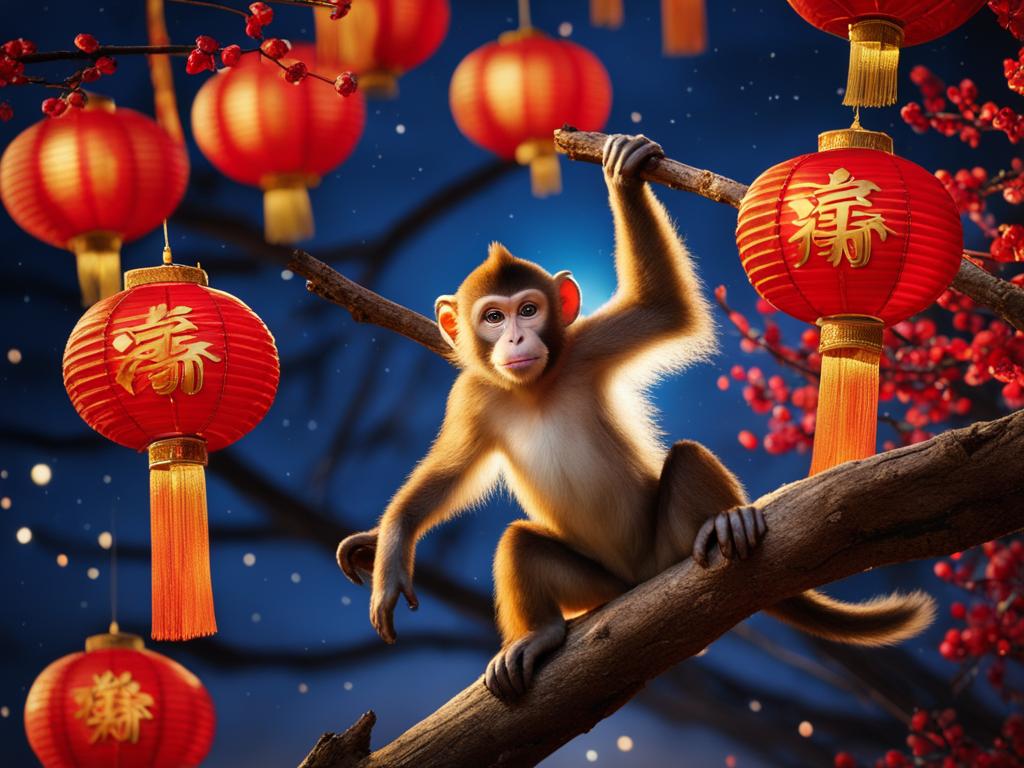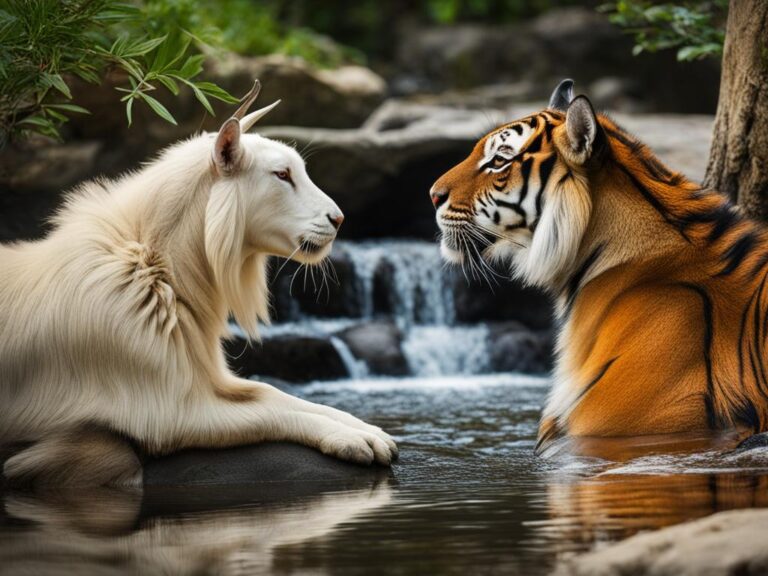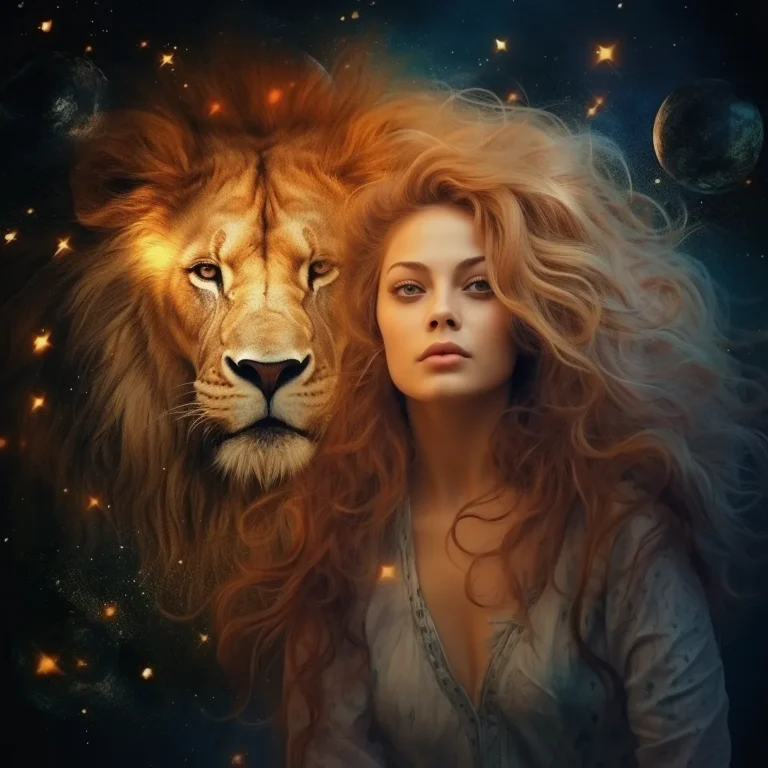Monkey’s Role in Family Celebrations and Gatherings. Monkeys hold a special place in Chinese culture, where they are revered for their intelligence and power. As the ninth animal in the Chinese zodiac, monkeys are associated with cleverness, and it is believed that having a child born in the Year of the Monkey will make them clever as well. In Chinese culture, monkeys are also linked to high officials, as the Chinese character for “monkey” sounds similar to “high official.” They are often depicted in ancient paintings symbolizing promotion and maintaining a high official standing. This intriguing creature plays a significant role in family celebrations and gatherings, adding joy and symbolism to Chinese traditions.
Key Takeaways
- Monkeys are highly regarded in Chinese culture for their intelligence and power.
- Having a child born in the Year of the Monkey is believed to bring cleverness.
- Monkeys are associated with high officials in Chinese culture.
- They play a significant role in family celebrations and gatherings.
- Monkeys symbolize promotion and maintaining a high official standing.
The Monkey’s Symbolism in Chinese Culture
The monkey holds great symbolism in Chinese culture, representing cleverness and intelligence. In Chinese mythology and folklore, monkeys are often associated with powerful deities and bringing good luck. The monkey’s significance extends to family celebrations and gatherings, where it is considered a positive and auspicious symbol.
In Chinese traditions, having a child born in the Year of the Monkey is believed to bless them with cleverness and intelligence. Monkeys are praised in Chinese culture, and the saying “Your kid is like a Monkey” is considered a compliment. Their association with high officials in Chinese culture further emphasizes their importance and symbolism.
Monkeys are often depicted in ancient paintings, symbolizing promotion and maintaining a high official standing. These paintings showcase the monkey’s cleverness and intelligence, highlighting their valued role in Chinese culture. The monkey’s symbolism in Chinese celebrations and family traditions is deeply rooted and reflects their revered status in society.
The Monkey’s Significance in Chinese Celebrations
The monkey plays a significant role in Chinese celebrations, symbolizing luck, happiness, and prosperity. During Chinese New Year, monkeys are often featured in decorations, such as red envelopes and paper cut-outs, to bring good fortune to households. Monkey dances and performances are also common during New Year festivities, believed to bring joy and prosperity to the community.
Monkeys’ significance extends beyond Chinese New Year, as they are also present in other celebrations and traditions. They are often depicted in paintings, sculptures, and other forms of art, representing their symbolic importance. Monkeys are seen as auspicious animals, believed to bring positive energy, luck, and happiness to various occasions.
The monkey’s role in Chinese celebrations showcases its cultural importance and the belief in its positive impact on people’s lives. Whether through symbolism or actual presence, monkeys bring joy and good fortune to Chinese traditions and festivities.
| Monkey Symbolism in Chinese Culture | Monkey’s Significance in Chinese Celebrations |
|---|---|
| Representation of cleverness and intelligence | Brings luck, happiness, and prosperity |
| Associated with high officials in Chinese culture | Featured in Chinese New Year decorations |
| Depicted in ancient paintings symbolizing promotion | Common in monkey dances and performances during festivities |
| Symbolizes positive attributes in Chinese traditions | Believed to bring joy, good fortune, and positive energy |
Monkey’s Importance in Chinese New Year Celebrations

The Chinese New Year is a time of joyous celebration and festivities, and the monkey plays a significant role in this annual event. The monkey is considered a symbol of luck and fortune in Chinese culture, and its presence during the New Year celebrations is believed to bring happiness and prosperity to households. To showcase the monkey’s importance, various customs and traditions related to monkeys are observed during Chinese New Year.
One of the most common ways the monkey is celebrated during Chinese New Year is through decorations. Monkeys are often depicted on red envelopes, known as “hongbao,” which are filled with money and given as gifts to bring good luck. Paper cut-outs of monkeys are also displayed in homes and businesses to symbolize good fortune for the coming year. These decorations create a vibrant and festive atmosphere, with the monkey as a central figure.
“The monkey is a symbol of luck and fortune in Chinese culture, and its presence during the New Year celebrations is believed to bring happiness and prosperity to households.”
In addition to decorations, monkey dances and performances are an integral part of Chinese New Year festivities. Acrobatic troupes and dancers dressed in monkey costumes entertain the crowds with their lively and energetic performances. These monkey dances are believed to drive away evil spirits and bring good luck for the upcoming year. The sight of the dancing monkeys adds to the joyous atmosphere of the celebrations.
The monkey’s role in Chinese New Year celebrations demonstrates its significance as a symbol of luck, fortune, and happiness. It is a time when families come together to celebrate and honour their traditions, and the presence of the monkey brings an extra sense of joy and prosperity to the festivities.
Monkey’s Significance in Chinese Astrology

In Chinese astrology, the Monkey is one of the 12 animal signs in the zodiac. People born in the Year of the Monkey are believed to possess certain traits and characteristics associated with the monkey. They are often described as intelligent, witty, and outgoing. Monkeys are known for their quick thinking and creativity. They have a great sense of humour and enjoy making people laugh. People born in the Year of the Monkey are also said to be resourceful and adaptable. Their astrological significance adds to their importance in Chinese culture and celebrations.
Monkey Zodiac Traits
Those born in the Year of the Monkey are known for their intelligence and cleverness. They possess quick wit and are highly adaptable to different situations. Monkeys are creative thinkers and often find unique solutions to problems. They have a natural charm and charisma that draws people to them. Monkeys are also known for their playful nature and love for socializing. Their ability to make others laugh and their outgoing personalities make them popular and well-liked individuals.
Monkey’s Importance in Chinese Astrology
Monkeys hold a significant place in Chinese astrology. They are considered lucky and are believed to bring good fortune and prosperity. People born in the Year of the Monkey are often seen as fortunate and successful in their endeavours. Their intelligence and resourcefulness are highly valued attributes that contribute to their achievements. Monkeys are also known for their adaptability, which helps them navigate through various challenges and emerge victorious. Their presence in Chinese astrology indicates the importance of these traits in individuals and highlights their positive impact on Chinese culture.
| Positive Traits | Negative Traits |
|---|---|
| Intelligent | Impulsive |
| Witty | Restless |
| Outgoing | Unpredictable |
| Adaptable | Inconsistent |
| Resourceful | Manipulative |
“People born in the Year of the Monkey are characterized by their quick thinking, creativity, and charm. They possess a natural ability to adapt to different situations and have a magnetic personality that draws people to them.”
The Monkey’s significance in Chinese astrology goes beyond just their traits and characteristics. They are seen as symbols of luck, prosperity, and success. The presence of the Monkey in the zodiac is a reminder of the importance of intelligence, wit, and adaptability in achieving personal and professional goals. It is believed that embracing these qualities will lead to a prosperous and fulfilling life.
In summary, the Monkey’s significance in Chinese astrology lies in its representation of intelligence, wit, adaptability, and charm. People born in the Year of the Monkey are believed to possess these traits and are considered fortunate individuals. The Monkey’s presence in Chinese astrology highlights the cultural importance of these characteristics and their positive influence on personal and collective success.
Monkey’s Role in Chinese Mythology and Fiction
The monkey holds a significant place in Chinese mythology and fiction, where it is often revered as a protecting god. In traditional Chinese beliefs, different monkey-related symbols are used as talismans for protection in various settings. These symbols are believed to bring peace and capability to babies, with stone-carved monkey statues placed near infants on heated stone beds known as kings. The monkey’s presence as a protective deity showcases its revered status in Chinese culture.
One of the most well-known representations of monkeys in Chinese fiction is the character of the Monkey King in the classic novel “Journey to the West.” The Monkey King, named Sun Wukong, is a heroic figure with extraordinary powers and abilities. He is depicted as possessing immense strength, shape-shifting abilities, and mastery of martial arts. Throughout his adventures, the Monkey King displays his wit and resourcefulness, becoming a beloved character in Chinese literature.
The Monkey King is an iconic figure in Chinese fiction. His character embodies qualities such as bravery, cleverness, and loyalty, making him a symbol of heroism and resilience. He has inspired countless adaptations and depictions in various forms of media, including television shows, movies, and stage plays.
The Monkey’s role in Chinese mythology and fiction not only highlights its significance as a protective deity but also showcases its enduring popularity and influence in Chinese culture.
| Symbol | Meaning |
|---|---|
| Stone-carved monkey statues | Bringing peace and capability to babies |
| The Monkey King in “Journey to the West” | A heroic figure with extraordinary powers and abilities |
| Monkey dances and performances | Bringing joy and entertainment to cultural celebrations |
Best Places to Experience Monkeys in China

If you’re fascinated by monkeys and want to experience them in their natural habitats, China offers several excellent locations to do so. These places provide unique opportunities to observe monkeys up close and learn more about their behaviour and habitat. Here are some of the best places to see monkeys in China:
- Huangshan Monkey Valley: Located southwest of the Yellow Mountains Scenic Area, Huangshan Monkey Valley is known for its Tibetan macaques. These monkeys are playful and curious, often interacting with visitors. The valley offers a beautiful setting with lush greenery and stunning mountain views.
- Zhangjiajie National Forest Park: Home to over 3,000 macaques, Zhangjiajie National Forest Park is a paradise for monkey enthusiasts. The park is divided into different groups of macaques based on their fur color, creating a visually captivating experience. Visitors can witness the monkeys in their natural habitat, swinging through the trees and enjoying their surroundings.
- Mt. Emei Natural Ecology Monkey Reserve: As China’s largest reserve for wild monkeys, Mt. Emei Natural Ecology Monkey Reserve is a must-visit for any monkey lover. With over 1,000 Tibetan macaques, this reserve offers a diverse range of monkey species to observe. Visitors can embark on guided tours to learn about the monkeys’ behaviours and conservation efforts.
These locations not only provide an opportunity to see monkeys but also offer stunning natural landscapes that add to the overall experience. Whether you’re interested in capturing beautiful photographs or simply enjoying the presence of these fascinating animals, these places are sure to leave a lasting impression.
Remember to respect the monkeys’ natural habitat and follow any guidelines or rules set by the authorities. By doing so, you can contribute to the conservation efforts and ensure the well-being of these incredible creatures.
| Location | Monkey Species | Main Attractions |
|---|---|---|
| Huangshan Monkey Valley | Tibetan macaque | Playful and curious monkeys in a stunning mountainous setting |
| Zhangjiajie National Forest Park | Macaques (divided into groups based on fur colour) | Interaction with monkeys in their natural habitat amidst breathtaking scenery |
| Mt. Emei Natural Ecology Monkey Reserve | Tibetan macaque and other monkey species | Guided tours to observe monkeys and learn about conservation efforts |
Visiting these locations will not only allow you to witness the beauty of these incredible creatures but also gain a deeper appreciation for their role in China’s natural ecosystems. So pack your camera and embark on an adventure to experience the awe-inspiring world of monkeys in China.
Influences of the Chinese Zodiac Monkey

The Chinese Zodiac Monkey has had a significant influence not only in Chinese culture but also on various cultures around the world. Its characteristics and symbolism have captured the interest and fascination of people from different backgrounds, leading to its adoption and incorporation into other cultures in different ways.
“The Chinese Zodiac Monkey serves as a cultural bridge, connecting people across continents and promoting cross-cultural understanding and appreciation.”
One of the notable influences of the Chinese Zodiac Monkey is seen in countries such as Japan, Korea, and Vietnam, where the Chinese zodiac is widely recognized and integrated into their own cultural practices. The Monkey’s characteristics, such as intelligence, wit, and resourcefulness, are admired and celebrated in these cultures as well.
In Western cultures, particularly in the United States and Europe, the Chinese zodiac, including the Monkey, has gained popularity as a tool for self-discovery and personal growth. Many people find fascination in exploring the unique traits and qualities associated with their zodiac sign, including the Monkey. It provides a means to understand oneself and others better, enhancing interpersonal relationships and promoting personal development.
The Chinese zodiac serves as a reminder that despite cultural differences, there are common threads that unite humanity. It highlights the universal desire to seek meaning and guidance from the celestial realm. The Monkey’s influence on other cultures has helped create connections and fostered an appreciation for Chinese traditions and beliefs.
Table: Influence of the Chinese Zodiac Monkey on Other Cultures
| Culture | Influence |
|---|---|
| Japan | – Integration of Chinese zodiac into own cultural practices |
| Korea | – Incorporation of Monkey’s characteristics in cultural celebrations |
| Vietnam | – Adoption of the Chinese zodiac in fortune-telling and day-to-day life |
| United States | – Popularization of the Chinese zodiac for self-discovery and personal growth |
| Europe | – Utilization of Chinese zodiac for enhanced interpersonal relationships |
Through the Chinese Zodiac Monkey and its influence on other cultures, we are reminded of the interconnectedness of our world. It invites us to appreciate the diverse beliefs and traditions that shape our global society while recognizing the common threads that unite us all.
Conclusion
The Chinese Zodiac Monkey holds a significant role in family celebrations and gatherings, embodying the cleverness and intelligence that Chinese culture reveres. With its association to high officials and its symbolism of luck and fortune, the Monkey brings joy, luck, and prosperity to Chinese traditions.
In Chinese astrology, those born in the Year of the Monkey are described as intelligent, witty, and resourceful, reflecting the admirable qualities associated with this animal. Furthermore, monkeys feature prominently in Chinese mythology and fiction, serving as protecting gods and starring as heroic characters in classic tales.
China offers various opportunities to experience monkeys in their natural habitats, such as the Huangshan Monkey Valley, Zhangjiajie National Forest Park, and Mt. Emei Natural Ecology Monkey Reserve. These locations provide an immersive experience, allowing visitors to observe monkeys up close and gain a deeper understanding of their behaviour and habitat.
The influence of the Chinese Zodiac Monkey extends beyond China’s borders, with its symbols and traits captivating cultures around the world. Adopted by countries like Japan, Korea, and Vietnam, the Chinese zodiac fosters cross-cultural understanding and appreciation. In Western cultures, the Chinese zodiac has gained popularity as a tool for self-discovery and personal growth, connecting individuals and promoting a deeper understanding of themselves and others.
FAQ
What is the significance of the Monkey in Chinese culture?
The Monkey holds great significance in Chinese culture and is considered smart and powerful. It is associated with cleverness and is believed to bring luck and fortune.
Why is the Monkey important in Chinese New Year celebrations?
Monkeys are considered symbols of luck and fortune in Chinese New Year celebrations. They are often depicted in decorations and performances to bring good luck to households.
What are the characteristics of people born in the Year of the Monkey?
People born in the Year of the Monkey are believed to be intelligent, witty, and resourceful. They have a great sense of humour and are known for their quick thinking and creativity.
How does the Monkey play a role in Chinese mythology and fiction?
Monkeys are often portrayed as protecting gods in Chinese mythology. In Chinese fiction, the Monkey King, Sun Wukong, is a heroic character with extraordinary powers and abilities.
Where can I see monkeys in their natural habitats in China?
Some of the best locations to see monkeys in China include Huangshan Monkey Valley, Zhangjiajie National Forest Park, and Mt. Emei Natural Ecology Monkey Reserve.
How has the Chinese Zodiac Monkey influenced other cultures?
The Chinese Zodiac, including the Monkey, has had significant influences on various cultures around the world. Countries such as Japan, Korea, and Vietnam have adopted the Chinese zodiac into their own culture.
What is the Monkey’s role in family celebrations and gatherings in Chinese culture?
The Monkey is revered for its symbolism of cleverness and is associated with high officials. It is believed to bring luck, fortune, and prosperity, making it an essential part of Chinese family celebrations and gatherings.





